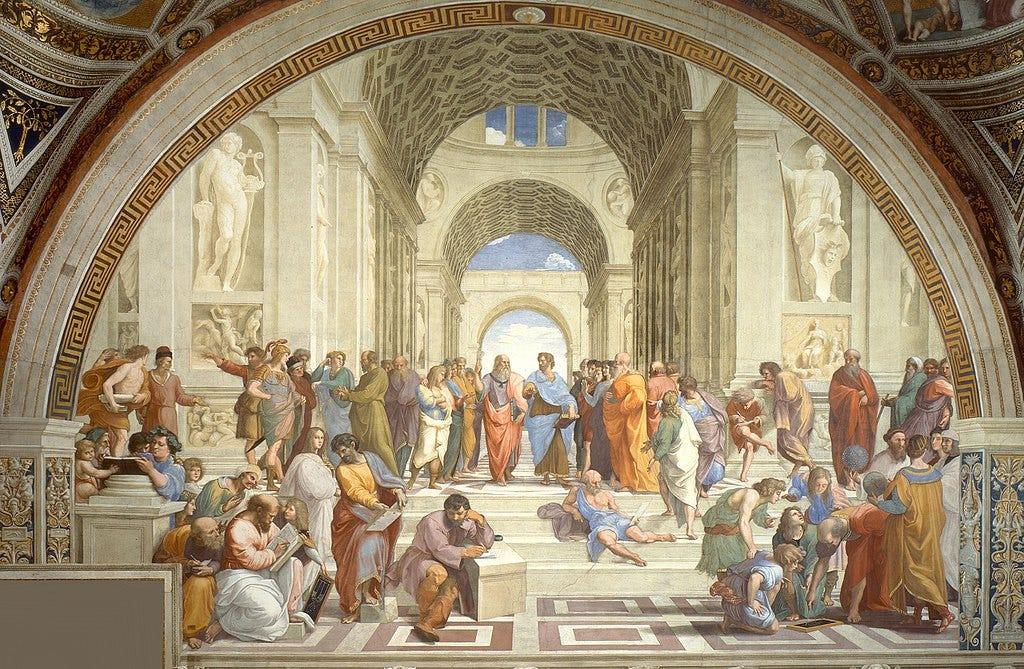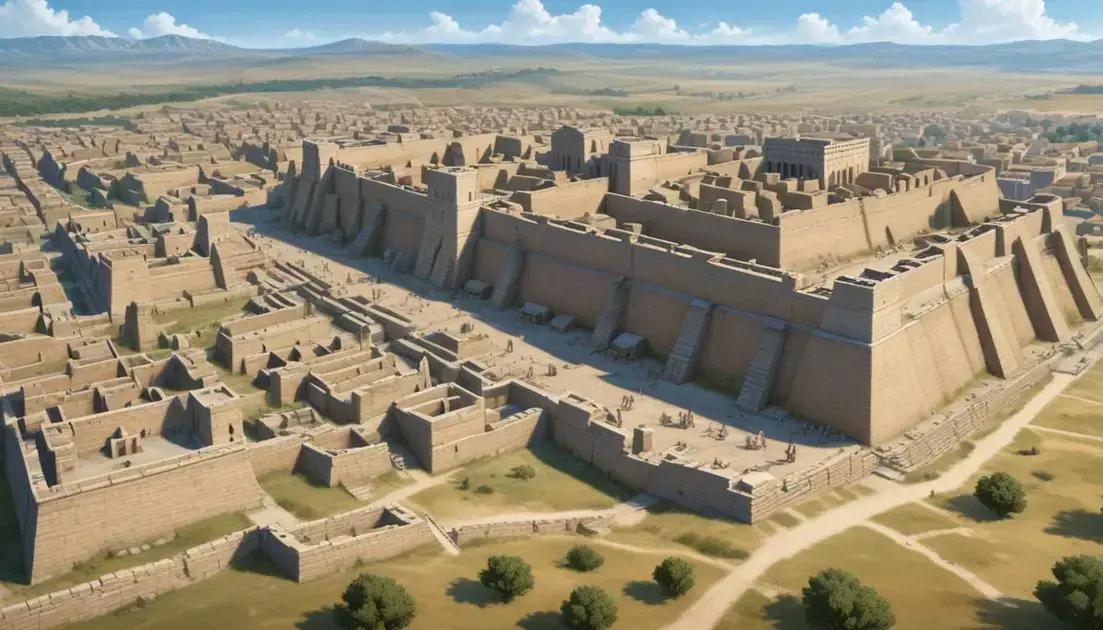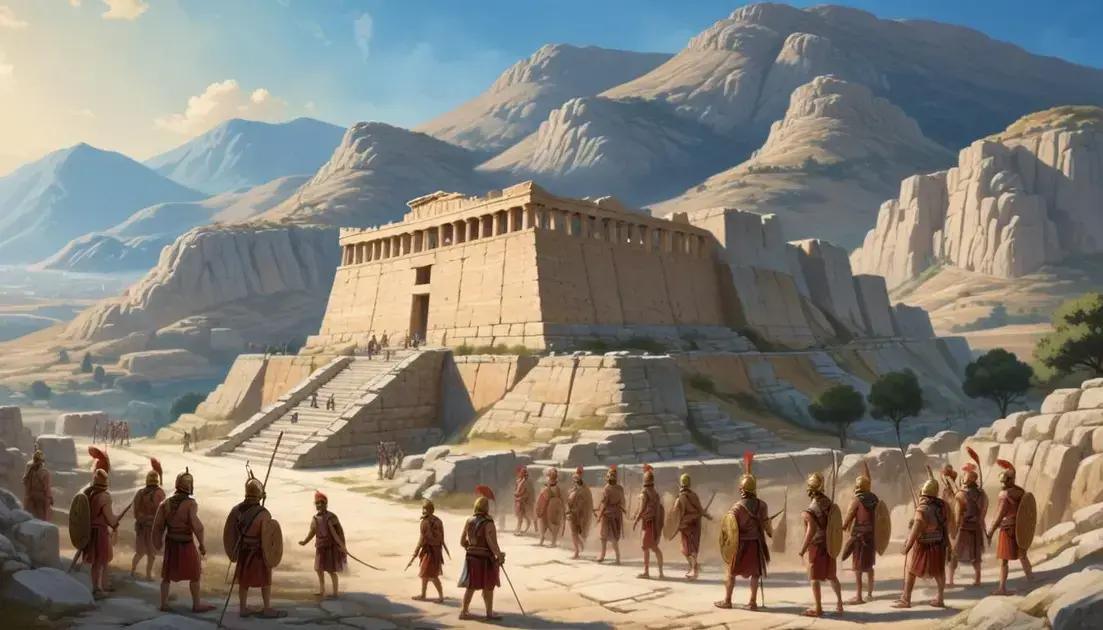
The Role of Ancient Greece in Shaping Democracy and Philosophy
Ancient Greece, often lauded as the cradle of Western civilization, holds an unparalleled position in shaping the trajectory of human history. Its influence resonates profoundly in our modern world, particularly through its contributions to democracy and philosophy. This exploration delves into the intricacies of Ancient Greece’s legacy, examining its enduring impact on governance, intellectual thought, and the broader cultural landscape. We will journey through the birth of democracy in Athens, the philosophical giants who shaped Western thought, and the lasting impact of the Golden Age, ultimately showcasing the continued relevance of Ancient Greece in the 21st century.
I. The Athenian Experiment: Democracy’s Genesis
The term “democracy,” derived from the Greek words demos (people) and kratos (power), embodies the very essence of Athenian innovation. While earlier forms of governance existed, the Athenian model of direct democracy, flourishing in the 5th century BCE, represents a revolutionary leap in political thought. This wasn’t a simple transition; it was a complex evolution, building upon prior systems and grappling with inherent challenges.
The reforms of Cleisthenes, often cited as the architect of Athenian democracy, were pivotal. His restructuring of Athenian society, moving away from aristocratic control towards a system of representation based on demes (local districts), fundamentally altered the political landscape. This shift empowered ordinary citizens, granting them a voice in the affairs of the state. The Ecclesia, the Athenian Assembly, became the heart of the democratic process, a forum where citizens directly debated and voted on laws, policies, and crucial decisions affecting their lives.
However, the Athenian democracy wasn’t without its limitations. It was profoundly exclusive, excluding women, slaves, and foreigners from participation. This inherent inequality casts a shadow on the idealistic notion of “power to the people.” Furthermore, the direct democracy model proved challenging to manage in a growing city-state. The sheer logistics of gathering all citizens for every decision created practical limitations, particularly as the Athenian population increased. This led to the development of councils and other institutions to manage the day-to-day affairs of government, introducing elements of indirect representation.
The ostracism system, whereby citizens could vote to exile an individual deemed a threat to the democracy, highlights the inherent tensions and potential for instability within the system. It underscores the delicate balance between individual liberty and the collective good, a tension that continues to resonate in modern democratic societies.
Despite its limitations, the Athenian experiment remains a cornerstone of democratic ideals. The principles of citizen participation, the rule of law (albeit imperfectly applied), and the emphasis on debate and deliberation continue to inspire democratic movements and systems across the globe. The very concept of public discourse and the active involvement of citizens in shaping their own governance is a direct legacy of the Athenian democracy. The study of its successes and failures offers valuable lessons for contemporary democratic societies struggling with issues of representation, participation, and the balance between individual rights and collective well-being. The ongoing debate about the effectiveness and fairness of various democratic models is a direct descendant of the Athenian experiment, demonstrating the enduring relevance of this ancient system.
II. The Titans of Thought: The Philosophical Legacy of Ancient Greece
Ancient Greece is not merely the birthplace of democracy but also a crucible of philosophical thought, giving rise to some of the most influential thinkers in Western history. Their contributions extend far beyond the realm of abstract ideas; they fundamentally shaped our understanding of ethics, logic, metaphysics, politics, and the human condition itself.
Socrates: The enigmatic Socrates, although leaving no written works, left an indelible mark on Western philosophy through the accounts of his students, particularly Plato. His method, known as the Socratic method, emphasized critical inquiry and relentless questioning. By employing a dialectical approach, engaging in rigorous dialogues that challenged assumptions and exposed inconsistencies, Socrates sought to uncover truth and promote intellectual honesty. His unwavering commitment to truth and his willingness to confront societal norms, even at the cost of his life, exemplify the power of intellectual integrity. The Socratic method remains a cornerstone of critical thinking and pedagogical practice, utilized in educational settings worldwide to foster intellectual curiosity and analytical skills.
Plato: Plato, a student of Socrates, built upon his mentor’s legacy, establishing the Academy in Athens, one of the first institutions of higher learning in the Western world. His extensive written works, including The Republic, explore a wide range of philosophical themes, including justice, knowledge, and the ideal state. Plato’s theory of Forms, positing the existence of a realm of perfect, unchanging ideals that serve as the blueprint for the physical world, profoundly influenced subsequent philosophical and theological thought. His exploration of the nature of reality and the human soul continues to be debated and analyzed, showcasing the enduring power and relevance of his ideas. The Academy itself served as a model for future institutions of learning, establishing the precedent for structured, formalized education.
Aristotle: Aristotle, a student of Plato, further expanded the boundaries of philosophical inquiry. He made significant contributions to logic, developing formal systems of deductive reasoning that remain fundamental to scientific and philosophical methodology. His comprehensive approach to knowledge encompassed a vast range of subjects, including ethics, politics, physics, metaphysics, and biology. His emphasis on empirical observation and systematic classification laid the groundwork for the development of scientific methodology. His ethical framework, emphasizing virtue ethics and the pursuit of eudaimonia (flourishing), continues to influence ethical theory and practice. Aristotle’s influence extends to numerous fields, demonstrating his remarkable intellectual breadth and his enduring impact on Western thought.
Beyond these towering figures, other schools of thought emerged, including Stoicism, Epicureanism, and Cynicism, each offering distinct perspectives on ethics, happiness, and the nature of the good life. These diverse philosophical schools demonstrate the vibrant intellectual landscape of Ancient Greece and its enduring legacy in shaping our ethical and moral frameworks. Their ideas, debated and reinterpreted for centuries, continue to inform contemporary discussions on ethics, politics, and the meaning of life.
III. The Golden Age: A Cultural and Artistic Flourishing
The 5th and 4th centuries BCE represent the Golden Age of Ancient Greece, a period characterized by remarkable cultural and artistic achievements. This era witnessed an explosion of creativity, leaving behind a legacy that continues to inspire and inform artistic expression today.
The Athenian empire’s dominance facilitated a flourishing of artistic and intellectual pursuits. The patronage of wealthy citizens and the state itself fueled the creation of magnificent structures, such as the Parthenon, a testament to the architectural prowess of the time. The sculptures and friezes adorning the Parthenon exemplify the artistry and technical skill of ancient Greek sculptors, representing a pinnacle of classical sculpture. The influence of classical Greek sculpture on subsequent artistic movements is undeniable, with its principles of proportion, harmony, and idealism continuing to be studied and emulated.
Greek drama, exemplified by the works of Aeschylus, Sophocles, and Euripides, reached new heights during the Golden Age. Their tragedies and comedies explored profound themes of human nature, fate, and morality, providing enduring insights into the complexities of the human condition. These plays, still performed and studied today, offer a glimpse into the values and beliefs of ancient Greek society and their enduring relevance to contemporary audiences.
The historical writings of Herodotus and Thucydides established the foundations of historical scholarship, emphasizing empirical observation and analysis. Their meticulous accounts of historical events shaped the development of historical methodology and provided invaluable insights into the ancient world. Their works serve as models for rigorous historical research and continue to be studied for their insightful analysis of power, politics, and human behavior.
The Golden Age’s legacy extends beyond its artistic and intellectual achievements. It represents a period of remarkable creativity and innovation, showcasing the remarkable potential of human ingenuity and the transformative power of a thriving culture. The enduring influence of this era underscores the importance of supporting and nurturing creative expression, recognizing its crucial role in shaping societies and fostering human progress.
IV. The Enduring Relevance of Ancient Greece in the 21st Century
The legacy of Ancient Greece extends far beyond historical significance. Its impact on our modern world is profound and multifaceted, shaping our political systems, philosophical frameworks, and cultural sensibilities.
The democratic ideals born in Athens, despite their limitations, continue to inspire democratic movements worldwide. The principles of citizen participation, the rule of law, and the importance of public discourse remain cornerstones of modern democracies. The ongoing struggle for greater equality and inclusion within democratic systems reflects a continued engagement with the challenges and complexities inherent in the Athenian experiment.
The philosophical contributions of Socrates, Plato, and Aristotle continue to shape ethical and political discourse. Their ideas are debated, reinterpreted, and applied to contemporary challenges, demonstrating their enduring relevance. The exploration of fundamental questions about justice, morality, and the nature of reality remains a central concern of modern philosophy, reflecting the enduring legacy of these ancient thinkers.
The artistic and cultural achievements of the Golden Age continue to inspire artists, architects, and designers. The principles of classical aesthetics, the power of dramatic storytelling, and the importance of historical understanding remain deeply embedded in our cultural consciousness. The continuing study and appreciation of Greek art, literature, and philosophy enrich our lives and provide a valuable connection to our cultural heritage.
In conclusion, Ancient Greece’s legacy is not merely a historical artifact; it is a living force shaping our world. Its contributions to democracy and philosophy, coupled with its remarkable cultural achievements, have profoundly influenced the course of Western civilization. By studying and understanding the complexities and contradictions of Ancient Greece, we gain valuable insights into the human condition and the ongoing quest for a more just, equitable, and flourishing society. The enduring relevance of Ancient Greece serves as a testament to the enduring power of human creativity, intellectual curiosity, and the pursuit of a better future.


